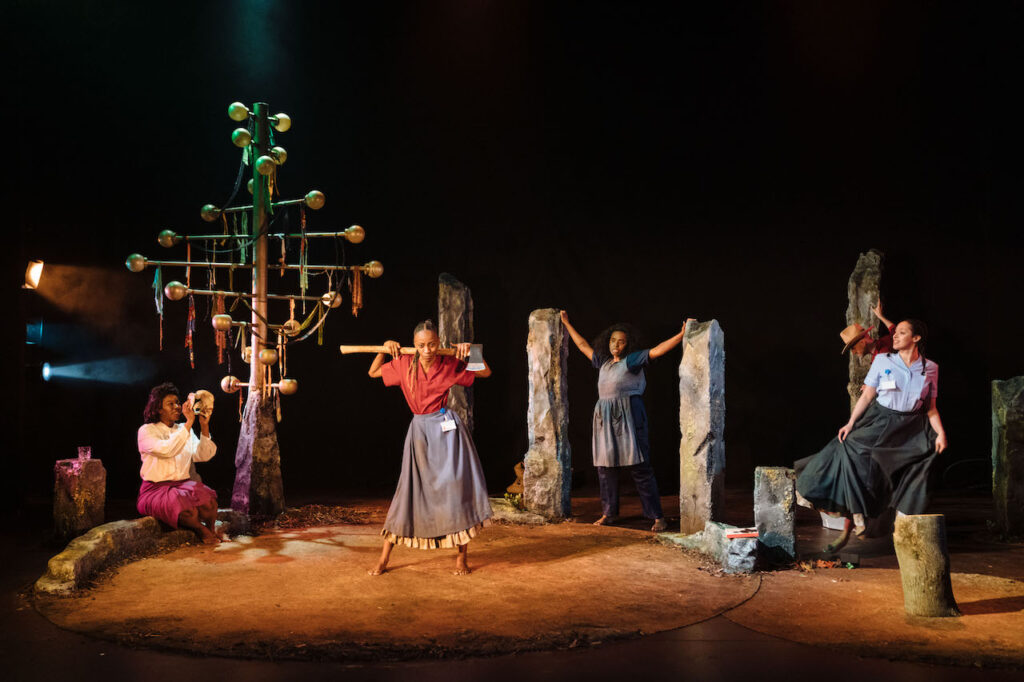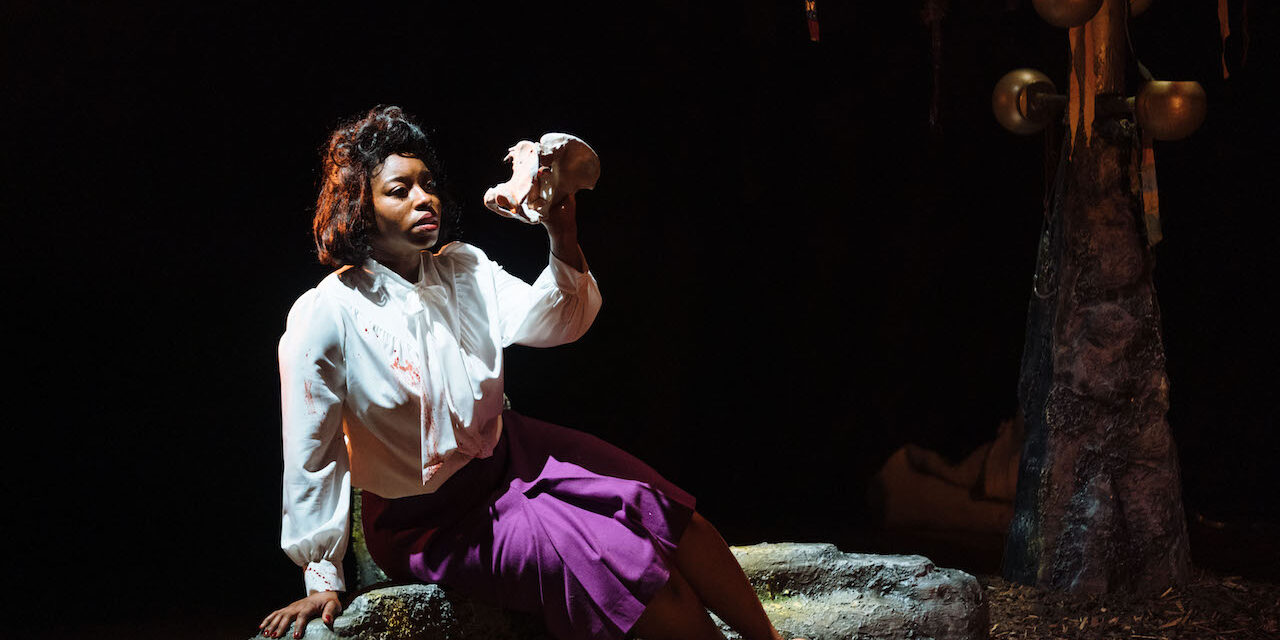
13 – 17 June
It is not often that we know the names of people who have, wittingly or unwittingly, provided biological material for medical research. Such material, placentas being a common example, is often treated as biological waste. On the other hand it may be used for research by medical institutions or, more problematically, drug companies. In it’s opening scene it looked as if the play was going to be an examination of the politics of genes, who owns what and what rights donors could expect to have.
Mojisola Adebayo writes with passion and no lack of poetic skill. Much of the play consists of a monologue by the central character, Henrietta Lack, a poor, Black American tobacco farmer whose cervical cancer cells were used without her permission and led to the first, ‘immortal cell line’, known as the HeLa line which led to a number of medical breakthroughs and innumerable patents making billions of dollars for drug companies.
Her unwitting legacy might be seen as an example of how race is not a factor in our advance as a species and how the races together are helping to fight diseases. For Ms Adebayo, it serves as a metaphor for the iniquities and grievances that to her mind have historically separated the races. Whites are represented as the ‘why’ people, the ‘why’ standing in for all the questions that black people could ask of whites, ‘Why do you hate us?’ and so on. I lost count of the number of times characters referred to ‘them’ or ‘they’ meaning all white people who all seemed to be lumped together. Moving between her American homeland, a rest room in an NHS hospital and an African village the play is a litany of woes, with Henrietta at times gazing at her legacy through a pelvic bone.
However the play is not without hope. Although there is a relentless and it has to be said, distancing, taxonomy of white evils committed against blacks, the three Black NHS nurses show compassion to the only white figure, a kind of Marlboro man, in chaps and Stetson, who lurks menacingly in the background throughout the play. Used here as a symbol of white oppression and by the same token a symbol of corporate greed in an industry that for decades denied and tried to hide the connection between their products and cancer, he is nonetheless shown some respect in his dying moments.
The four-strong cast (plus the silent man) give committed and full-bore performances that clearly connected with the refreshingly diverse audience.
★★★☆☆ Graham Wyles, 14 June 2023
Photo credit: Helen Murray


